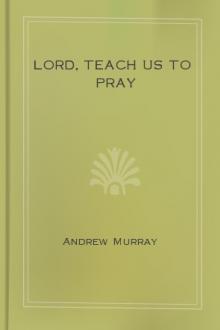St. George and St. Michael - George MacDonald (beach books .txt) 📗

- Author: George MacDonald
Book online «St. George and St. Michael - George MacDonald (beach books .txt) 📗». Author George MacDonald
with the cause of liberty: a soldier of hers may now afford to release an enemy for whom he has a friendship.'
'A friendship!' exclaimed sir Rowland. 'And wherefore, prithee, Mr Heywood? On what ground?'
But they had reached the cottage, and Richard made no reply. Having helped his prisoner to dismount, led him through the garden, and knocked at the door,
'Here, mother!' he said as mistress Rees opened it, 'I have brought thee a king's-man to cure this time.'
'Praise God!' returned mistress Rees-not that a king's-man was wounded, but that she had him to cure: she was an enthusiast in her art. Just as she had devoted herself to the puritan, she now gave all her care and ministration to the royalist. She got her bed ready for him, asked him a few questions, looked at his shoulder, not even yet quite healed, said it had not been well managed, and prepared a poultice, which smelt so vilely that Rowland turned from it with disgust. But the old woman had a singular power of persuasion, and at length he yielded, and in a few moments was fast asleep.
Calling the next morning, Richard found him very weak-partly from the unwonted fatigue of the previous day, and partly from the old woman's remedies, which were causing the wound to threaten suppuration. But somehow he had become well satisfied that she knew what she was about, and showed no inclination to rebel.
For a week or so he did not seem to improve. Richard came often, sat by his bedside, and talked with him; but the moment he grew angry, called him names, or abused his party, would rise without a word, mount his mare, and ride home-to return the next morning as if nothing unpleasant had occurred.
After about a week, the patient began to feel the benefit of the wise woman's treatment. The suppuration carried so much of an old ever-haunting pain with it, that he was now easier than he had ever been since his return to Raglan. But his behaviour to Richard grew very strange, and the roundhead failed to understand it. At one time it was so friendly as to be almost affectionate; at another he seemed bent on doing and saying everything he could to provoke a duel. For another whole week, aware of the benefit he was deriving from the witch, as he never scrupled to call her, nor in the least offended her thereby, apparently also at times fascinated in some sort by the visits of his enemy, as he persisted in calling Richard, he showed no anxiety to be gone.
'Heywood,' he said one morning suddenly, with quite a new familiarity, 'dost thou consider I owe thee an apology for carrying off thy mare? Tell me what look the thing beareth to thee.'
'Put thy case, Scudamore,' returned Richard.
And sir Rowland did put his case, starting from the rebel state of the owner, advancing to the natural outlawry that resulted, going on to the necessity of the king, &c., and ending thus:
'Now I know thou regardest neither king nor right, therefore I ask thee only to tell me how it seemeth to thee I ought on these grounds to judge myself, since for thy judgment in thy own person and on thy own grounds, or rather no grounds, I care not at all.'
'Come, then, let it be but a question of casuistry. Yet I fear me it will be difficult to argue without breaking bounds. Would my lord marquis now walk forth of his castle at the king's command as certainly as he will at the voice of the nation, that is, the cannons of the parliament?'
'The cannons of the cursed parliament are not the voice of the nation? Our side is the nation, not yours.'
'How provest thou that?'
'We are the better born, to begin with.'
'Ye have the more titles, I grant ye, but we have the older families. Let it be, however, that I was or am a rebel-then I can only say that in stealing-no, I will not say STEALING, for thou didst it with a different mind-all I will say is this, sir Rowland, that I should have scorned so to carry off thine or any man's horse.'
'Ah, but thou wouldst have no right, being but a rebel!'
'Bethink thee, thou must judge on my grounds when thou judgest me.'
'True; then am I driven to say thou wast made of the better earth-curse thee! I am ashamed of having taken thy mare-only because it was in a half-friendly passage with thee I learned her worth. But, hang thee! it was not through thee I learned to know my cousin, Dorothy Vaughan.'
The recoiling blood stung Richard's heart like the blow of a whip, but he manned himself to answer with coolness.
'What then of her?' he said. 'Hast thou been wooing her favour, sir Rowland? Thou owest me nothing there, I admit, even had she not sent me from her. Besides, I am scarce one to be content with a mistress whose favour depended on the not coming between of some certain other, known or unknown. This I say not in pride, but because in such case I were not the right man for her, neither she the woman for me.'
'Then thou bearest me no grudge in that I have sought the prize of my cousin's heart?'
'None,' answered Richard, but could not bring himself to ask how he had sped.
'Then will I own to thee that I have gained as little. I will madden myself telling thee whom I hate, and to thy comfort, that she despises me like any Virginia slave.'
'Nay, that I am sure she doth not. She can despise nothing that is honourable.'
'Dost thou then count me honourable, Heywood?' said Scudamore, in a voice of surprise, putting forth a thin white hand, and placing it on Richard's where it lay huge and brown on the coverlid: 'Then honourable I will be.'
'And, in that resolve, art, sir Rowland.'
'I will be honourable,' repeated Scudamore, angrily, with flushing cheek, and hard yet flashing eye, 'because thou thinkest me such, although my hate would, an' it might, damn thee to lowest hell.'
'Nay, but thou wilt be honourable for honour's sake,' said Richard. 'Bethink thee, when first we met, we were but boys: now are we men, and must put away boyish things.'
'Dost call it a boyish thing to be madly in love with the fairest and noblest and bravest mistress that ever trod the earth-though she be half a puritan, alack?'
'She half a puritan!' exclaimed Heywood. 'She hates the very wind of the word.'
'She may hate the word, but she is the thing. She hath read me such lessons as none but a puritan could.'
'Were they not then good lessons, that thou joinest with them a name hateful to thee?'
'Ay, truly-much too good for mortal like me-or thee either, Heywood. They are but hypocrites that pretend otherwise.'
'Callest thou thy cousin a hypocrite?'
'No, by heaven! she is not. She is a woman, and it is easy for women to say prayers.'
'I never rode into a fight but I said my prayer,' returned Richard.
'None the less art thou a hypocrite. I should scorn to be for ever begging favours as thou. Dost think God heareth such prayers as thine?'
'Not if He be such as thou, sir Rowland, and not if he who prays be such as thou thinkest him. Prithee, what sort of prayer thinkest thou I pray ere I ride into the battle?'
'How should I know? My lord marquis would have had me say my prayers at such a time, but, good sooth! I always forgot. And if I had done it, where would have been the benefit thereof, so long as thou, who wast better used to the work, wast praying against me? I say it is a cowardly thing to go praying into the battle, and not take thy fair chance as other men do.'
'Then will I tell thee to what purpose I pray. But, first of all, I must confess to thee that I have had my doubts, not whether my side were more in the right than thine, but whether it were worth while to raise the sword even in such cause. Now, still when that doubt cometh, ever it taketh from my arm the strength, and going down into the very legs of my mare causeth that she goeth dull, although willing, into the battle. Moreover, I am no saint, and therefore cannot pray like a saint, but only like Richard Heywood, who hath got to do his duty, and is something puzzled. Therefore pray I thus, or to this effect:
'"O God of battles! who, thyself dwelling in peace, beholdest the strife, and workest thy will thereby, what that good and perfect will of thine is I know not clearly, but thou hast sent us to be doing, and thou hatest cowardice. Thou knowest I have sought to choose the best, so far as goeth my poor ken, and to this battle I am pledged. Give me grace to fight like a soldier of thine, without wrath and without fear. Give me to do my duty, but give the victory where thou pleasest. Let me live if so thou wilt; let me die if so thou wilt-only let me die in honour with thee. Let the truth be victorious, if not now, yet when it shall please thee; and oh! I pray, let no deed of mine delay its coming. Let my work fail, if it be unto evil, but save my soul in truth."
'And in truth, sir Rowland, it seemeth to me then as if the God of truth heard me. Then say I to my mare, "Come, Lady, all is well now. Let us go. And good will come of it to thee also, for how should the Father think of his sparrows and forget his mares? Doubtless there are of thy kind in heaven, else how should the apostle have seen them there? And if any, surely thou, my Lady!" So ride we to the battle, merry and strong, and calm, as if we were but riding to the rampart of the celestial city.'
Rowland lay gazing at Richard for a few moments, then said:
'By heaven, but it were a pity you should not come together! Surely the same spirit dwelleth in you both! For me, I should show but as the shadow cast from her brightness. But I tell thee, roundhead, I love her better than ever roundhead could.'
'I know not, Scudamore. Nor do I mean to judge thee when I say that no man who loves not the truth can love a woman in the grand way a woman ought to be loved.'
'Tell me not I do not love her, or I will rise and kill thee. I love her even to doing what my soul hateth for her sake. Damned roundhead, she loves THEE.'
The last words came from him almost in a shriek, and he fell back panting.
Richard sat silent for a few moments, his heart surging and sinking. Then he said quietly:-
'It may be so, sir Rowland. We were boy and girl together-fed rabbits, flew kites, planted weeds to make flowers of them, played at marbles; she may love me a little, roundhead as I am.'
'By heaven, I will try her once more! Who knows the heart of a woman?' said Rowland through his teeth.
'If thou
'A friendship!' exclaimed sir Rowland. 'And wherefore, prithee, Mr Heywood? On what ground?'
But they had reached the cottage, and Richard made no reply. Having helped his prisoner to dismount, led him through the garden, and knocked at the door,
'Here, mother!' he said as mistress Rees opened it, 'I have brought thee a king's-man to cure this time.'
'Praise God!' returned mistress Rees-not that a king's-man was wounded, but that she had him to cure: she was an enthusiast in her art. Just as she had devoted herself to the puritan, she now gave all her care and ministration to the royalist. She got her bed ready for him, asked him a few questions, looked at his shoulder, not even yet quite healed, said it had not been well managed, and prepared a poultice, which smelt so vilely that Rowland turned from it with disgust. But the old woman had a singular power of persuasion, and at length he yielded, and in a few moments was fast asleep.
Calling the next morning, Richard found him very weak-partly from the unwonted fatigue of the previous day, and partly from the old woman's remedies, which were causing the wound to threaten suppuration. But somehow he had become well satisfied that she knew what she was about, and showed no inclination to rebel.
For a week or so he did not seem to improve. Richard came often, sat by his bedside, and talked with him; but the moment he grew angry, called him names, or abused his party, would rise without a word, mount his mare, and ride home-to return the next morning as if nothing unpleasant had occurred.
After about a week, the patient began to feel the benefit of the wise woman's treatment. The suppuration carried so much of an old ever-haunting pain with it, that he was now easier than he had ever been since his return to Raglan. But his behaviour to Richard grew very strange, and the roundhead failed to understand it. At one time it was so friendly as to be almost affectionate; at another he seemed bent on doing and saying everything he could to provoke a duel. For another whole week, aware of the benefit he was deriving from the witch, as he never scrupled to call her, nor in the least offended her thereby, apparently also at times fascinated in some sort by the visits of his enemy, as he persisted in calling Richard, he showed no anxiety to be gone.
'Heywood,' he said one morning suddenly, with quite a new familiarity, 'dost thou consider I owe thee an apology for carrying off thy mare? Tell me what look the thing beareth to thee.'
'Put thy case, Scudamore,' returned Richard.
And sir Rowland did put his case, starting from the rebel state of the owner, advancing to the natural outlawry that resulted, going on to the necessity of the king, &c., and ending thus:
'Now I know thou regardest neither king nor right, therefore I ask thee only to tell me how it seemeth to thee I ought on these grounds to judge myself, since for thy judgment in thy own person and on thy own grounds, or rather no grounds, I care not at all.'
'Come, then, let it be but a question of casuistry. Yet I fear me it will be difficult to argue without breaking bounds. Would my lord marquis now walk forth of his castle at the king's command as certainly as he will at the voice of the nation, that is, the cannons of the parliament?'
'The cannons of the cursed parliament are not the voice of the nation? Our side is the nation, not yours.'
'How provest thou that?'
'We are the better born, to begin with.'
'Ye have the more titles, I grant ye, but we have the older families. Let it be, however, that I was or am a rebel-then I can only say that in stealing-no, I will not say STEALING, for thou didst it with a different mind-all I will say is this, sir Rowland, that I should have scorned so to carry off thine or any man's horse.'
'Ah, but thou wouldst have no right, being but a rebel!'
'Bethink thee, thou must judge on my grounds when thou judgest me.'
'True; then am I driven to say thou wast made of the better earth-curse thee! I am ashamed of having taken thy mare-only because it was in a half-friendly passage with thee I learned her worth. But, hang thee! it was not through thee I learned to know my cousin, Dorothy Vaughan.'
The recoiling blood stung Richard's heart like the blow of a whip, but he manned himself to answer with coolness.
'What then of her?' he said. 'Hast thou been wooing her favour, sir Rowland? Thou owest me nothing there, I admit, even had she not sent me from her. Besides, I am scarce one to be content with a mistress whose favour depended on the not coming between of some certain other, known or unknown. This I say not in pride, but because in such case I were not the right man for her, neither she the woman for me.'
'Then thou bearest me no grudge in that I have sought the prize of my cousin's heart?'
'None,' answered Richard, but could not bring himself to ask how he had sped.
'Then will I own to thee that I have gained as little. I will madden myself telling thee whom I hate, and to thy comfort, that she despises me like any Virginia slave.'
'Nay, that I am sure she doth not. She can despise nothing that is honourable.'
'Dost thou then count me honourable, Heywood?' said Scudamore, in a voice of surprise, putting forth a thin white hand, and placing it on Richard's where it lay huge and brown on the coverlid: 'Then honourable I will be.'
'And, in that resolve, art, sir Rowland.'
'I will be honourable,' repeated Scudamore, angrily, with flushing cheek, and hard yet flashing eye, 'because thou thinkest me such, although my hate would, an' it might, damn thee to lowest hell.'
'Nay, but thou wilt be honourable for honour's sake,' said Richard. 'Bethink thee, when first we met, we were but boys: now are we men, and must put away boyish things.'
'Dost call it a boyish thing to be madly in love with the fairest and noblest and bravest mistress that ever trod the earth-though she be half a puritan, alack?'
'She half a puritan!' exclaimed Heywood. 'She hates the very wind of the word.'
'She may hate the word, but she is the thing. She hath read me such lessons as none but a puritan could.'
'Were they not then good lessons, that thou joinest with them a name hateful to thee?'
'Ay, truly-much too good for mortal like me-or thee either, Heywood. They are but hypocrites that pretend otherwise.'
'Callest thou thy cousin a hypocrite?'
'No, by heaven! she is not. She is a woman, and it is easy for women to say prayers.'
'I never rode into a fight but I said my prayer,' returned Richard.
'None the less art thou a hypocrite. I should scorn to be for ever begging favours as thou. Dost think God heareth such prayers as thine?'
'Not if He be such as thou, sir Rowland, and not if he who prays be such as thou thinkest him. Prithee, what sort of prayer thinkest thou I pray ere I ride into the battle?'
'How should I know? My lord marquis would have had me say my prayers at such a time, but, good sooth! I always forgot. And if I had done it, where would have been the benefit thereof, so long as thou, who wast better used to the work, wast praying against me? I say it is a cowardly thing to go praying into the battle, and not take thy fair chance as other men do.'
'Then will I tell thee to what purpose I pray. But, first of all, I must confess to thee that I have had my doubts, not whether my side were more in the right than thine, but whether it were worth while to raise the sword even in such cause. Now, still when that doubt cometh, ever it taketh from my arm the strength, and going down into the very legs of my mare causeth that she goeth dull, although willing, into the battle. Moreover, I am no saint, and therefore cannot pray like a saint, but only like Richard Heywood, who hath got to do his duty, and is something puzzled. Therefore pray I thus, or to this effect:
'"O God of battles! who, thyself dwelling in peace, beholdest the strife, and workest thy will thereby, what that good and perfect will of thine is I know not clearly, but thou hast sent us to be doing, and thou hatest cowardice. Thou knowest I have sought to choose the best, so far as goeth my poor ken, and to this battle I am pledged. Give me grace to fight like a soldier of thine, without wrath and without fear. Give me to do my duty, but give the victory where thou pleasest. Let me live if so thou wilt; let me die if so thou wilt-only let me die in honour with thee. Let the truth be victorious, if not now, yet when it shall please thee; and oh! I pray, let no deed of mine delay its coming. Let my work fail, if it be unto evil, but save my soul in truth."
'And in truth, sir Rowland, it seemeth to me then as if the God of truth heard me. Then say I to my mare, "Come, Lady, all is well now. Let us go. And good will come of it to thee also, for how should the Father think of his sparrows and forget his mares? Doubtless there are of thy kind in heaven, else how should the apostle have seen them there? And if any, surely thou, my Lady!" So ride we to the battle, merry and strong, and calm, as if we were but riding to the rampart of the celestial city.'
Rowland lay gazing at Richard for a few moments, then said:
'By heaven, but it were a pity you should not come together! Surely the same spirit dwelleth in you both! For me, I should show but as the shadow cast from her brightness. But I tell thee, roundhead, I love her better than ever roundhead could.'
'I know not, Scudamore. Nor do I mean to judge thee when I say that no man who loves not the truth can love a woman in the grand way a woman ought to be loved.'
'Tell me not I do not love her, or I will rise and kill thee. I love her even to doing what my soul hateth for her sake. Damned roundhead, she loves THEE.'
The last words came from him almost in a shriek, and he fell back panting.
Richard sat silent for a few moments, his heart surging and sinking. Then he said quietly:-
'It may be so, sir Rowland. We were boy and girl together-fed rabbits, flew kites, planted weeds to make flowers of them, played at marbles; she may love me a little, roundhead as I am.'
'By heaven, I will try her once more! Who knows the heart of a woman?' said Rowland through his teeth.
'If thou
Free e-book «St. George and St. Michael - George MacDonald (beach books .txt) 📗» - read online now
Similar e-books:





Comments (0)